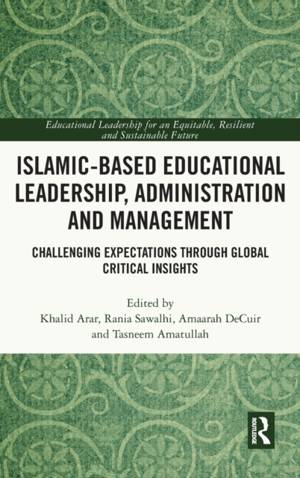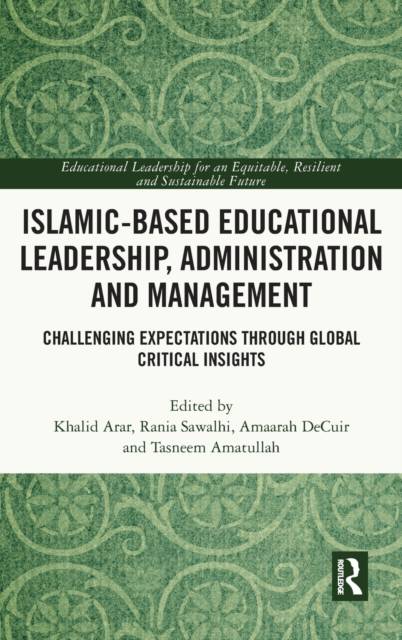
- Retrait gratuit dans votre magasin Club
- 7.000.000 titres dans notre catalogue
- Payer en toute sécurité
- Toujours un magasin près de chez vous
- Retrait gratuit dans votre magasin Club
- 7.000.0000 titres dans notre catalogue
- Payer en toute sécurité
- Toujours un magasin près de chez vous
Islamic-Based Educational Leadership, Administration and Management
Challenging Expectations Through Global Critical Insights
Description
Offering a vital, critical contribution to discussions on current perspectives, practices and assumptions on Islamic education, this book explores the topic through a wide range of diverse perspectives and experiences.
This volume challenges current assumptions around what is known as Islamic education and examines issues around educational leadership based on Islamic principles to confront xenophobia and Islamophobia in educational systems, policies and practices. Arguing for a new term to enter the discourse - 'Islamic-based' educational leadership - chapters approach the issue through critical reflexivity and diverse perspectives, addressing issues such as the higher education of immigrant students around the globe and the rising tensions in Muslim and non-Muslim populations. Exploring topics ranging from the leverage of leadership to religious education, this text brings together a wide range of case studies, experiences and examinations to shed light to the different approaches of Islamic-based educational leadership, administration and management.
This book will support researchers, doctoral students and scholars involved with multicultural education, school leadership and management studies, and education policy and politics more widely to explore new theories and practices that pave the way for future educational systems to meet faith-based demand in the school choice era.
Spécifications
Parties prenantes
- Editeur:
Contenu
- Nombre de pages :
- 288
- Langue:
- Anglais
- Collection :
Caractéristiques
- EAN:
- 9781032418551
- Date de parution :
- 10-02-23
- Format:
- Livre relié
- Format numérique:
- Genaaid
- Dimensions :
- 156 mm x 234 mm
- Poids :
- 603 g

Les avis
Nous publions uniquement les avis qui respectent les conditions requises. Consultez nos conditions pour les avis.





